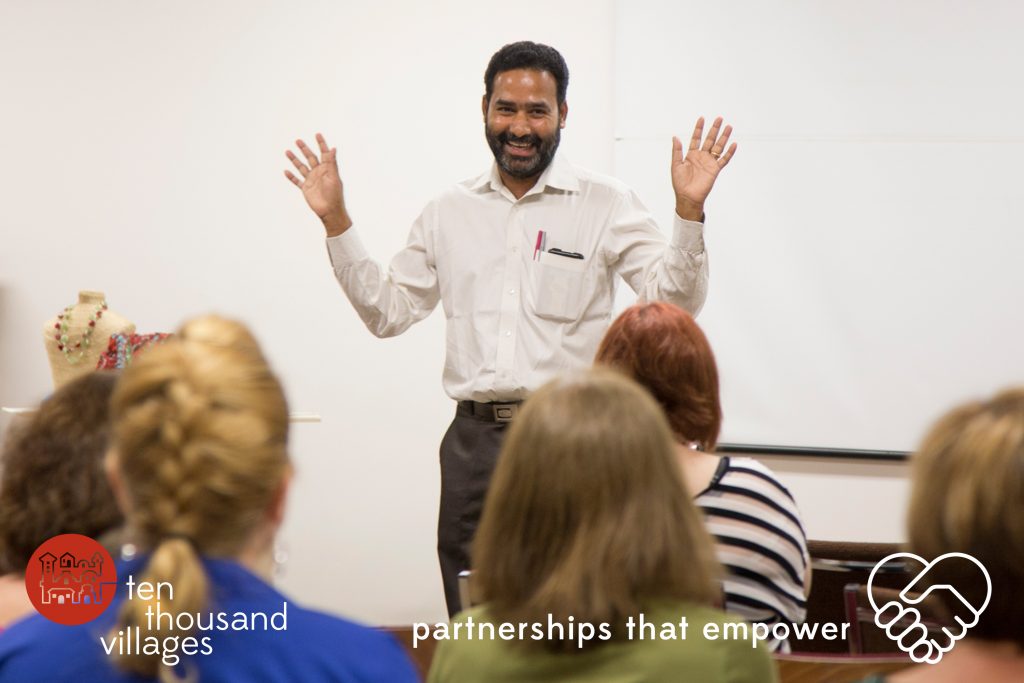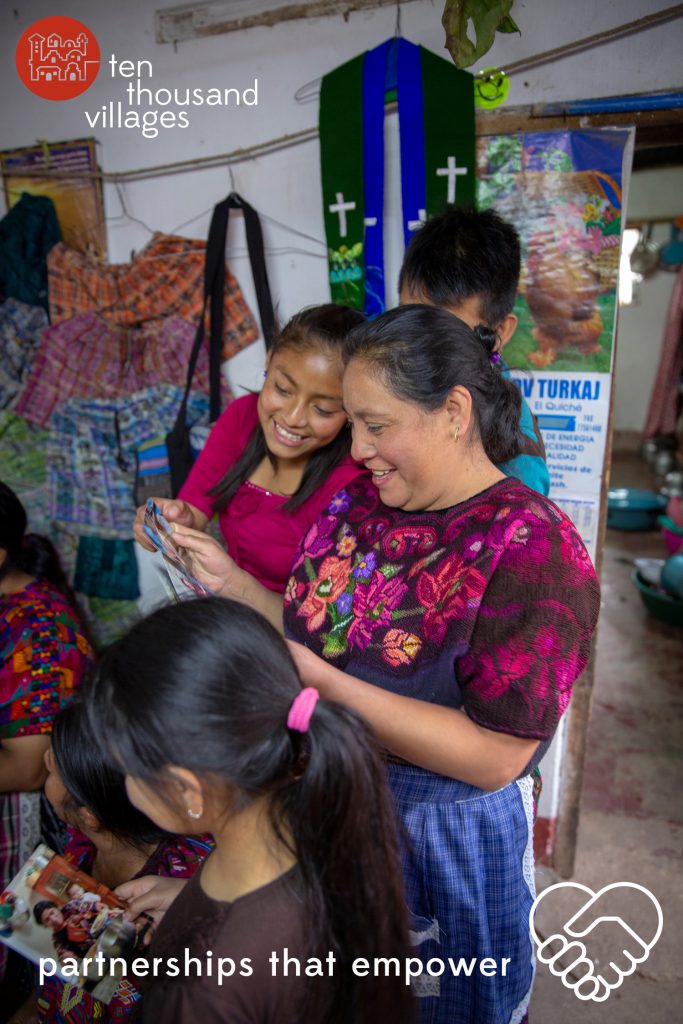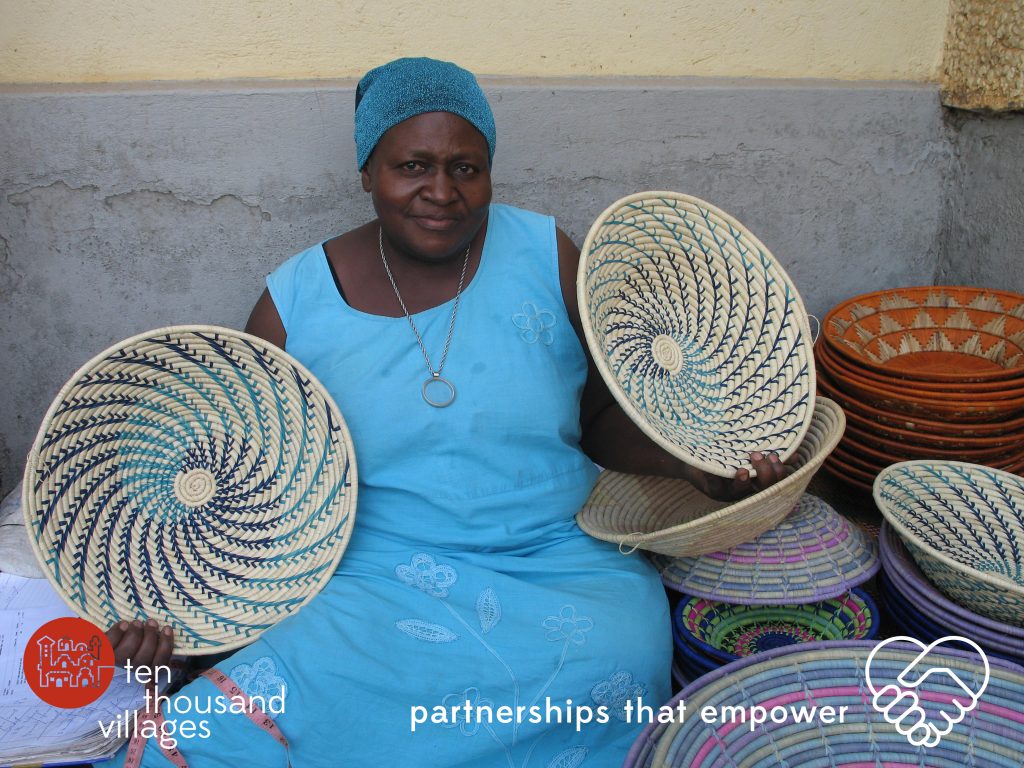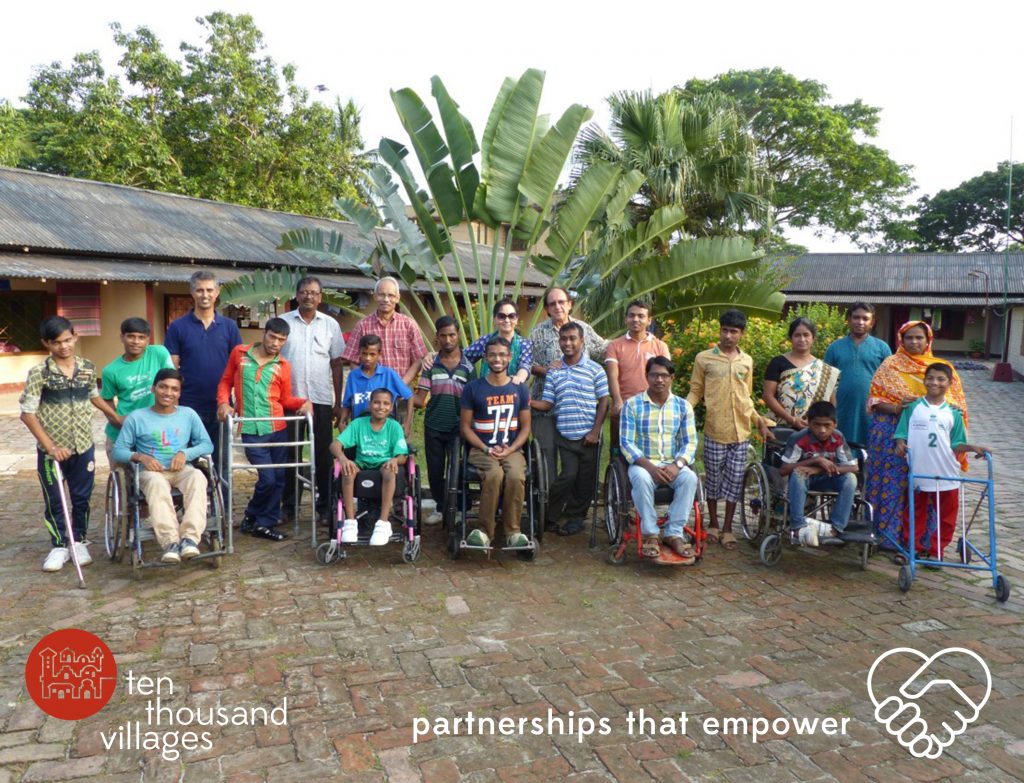
Our Commitment to Investing in Partnerships that Empower
At Ten Thousand Villages, we believe that where there is access to dependable and fair income, there is also the opportunity to live an empowered life of dignity and freedom. When people can plan for their future, afford education and access medical care, entire communities flourish.
How do we know? We’ve seen it happen first hand, year after year, since 1946.
Because our average relationship with artisan groups is over 20 years, we have the honor of watching children grow into adulthood and seeing families thrive. And by investing in partnerships with those who are traditionally excluded from the global economy, we are taking steps toward breaking the cycle of poverty.
Members of the workshop Ruth and Naomi view pictures brought by Ten Thousand Villages’ employees on a trip to Guatemala in 2018. The photos were of the workshop members a few years earlier.
Empowered women empower women
A woman’s ability to earn an income strengthens her position in her family and her community. In fact, research indicates that when women are empowered, sustainable economies develop. This couldn’t be more true for the women of Uganda Crafts. Founded and led by Betty Kinene, who was struggling to provide for her own family, Uganda Crafts has been creating opportunities for women since 1983. Since the group’s inception, it has become a member of the World Fair Trade Organization and built a robust export business of traditional baskets that supports the livelihoods of single mothers and widows.
Betty Kinene, founder of Uganda Crafts
Casting a light on the caste system
The United Nations Human Rights Council describes the caste system as “an occupational system, whereby people, according to their descent, undertake certain professions that are generally considered to be menial.” Certain members of society don’t just face job discrimination. They are also discriminated against in almost all other aspects of their lives including education, housing, and access to clean drinking water and healthcare.
When Laura and Enzo married and bought a plot of land in Bangladesh, they specifically wanted to work with marginalized members of the “untouchable” Rishi caste to create income generating opportunities. They knew that, given the chance, the Rishi could use their skills to earn money for themselves instead of being reliant upon charity. With this belief in mind, they founded the fair trade nonprofit organization Rishilpi. Now the group employs and empowers about 2,000 skilled artisans who invest their surplus income earned from weaving baskets into community development programs like schools and clinics.
Breaking down the barriers of stigma
Right on the border of India and Nepal is a bustling workshop called Little Flower. The artisans that work there are skilled silk spinners and cotton weavers. Their scarves are high quality, their blankets will keep you cozy, and their hand-dyed indigo pillows are almost too good to take a nap on.

The fair trade group employs around 70 artisans, mostly women, and is part of MESH’s (Maximizing Employment to Serve the Handicapped) network of workshops throughout India that empowers people with physical disabilities or leprosy.
There is a harsh stigma against those who have contracted leprosy in India, despite the fact that it is curable. Because of this, those who have leprosy often go untreated for too long, lose the use of hands or limbs, and are discriminated against and abandoned by their families even after the disease has left their body. Without access to jobs, many turn to begging. MESH provides empowering opportunities for people who would otherwise find it very difficult to get steady and fair employment.

Chief Manager of MESH, Mathew KK, at a visit to the Ten Thousand Villages main office in 2015.
By bringing the talents, perspectives and gifts of those who are often excluded from society to the table, we create a wealth of creativity and innovation together. When you invest in an inclusive economy by supporting the work of our fair trade partners, everybody has the opportunity to flourish.



Leave a comment